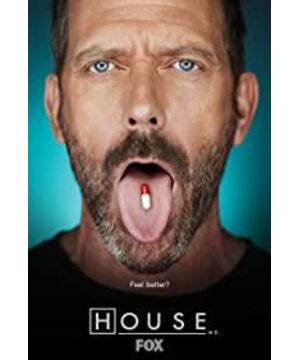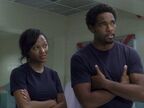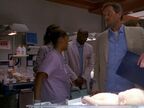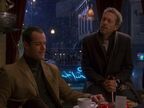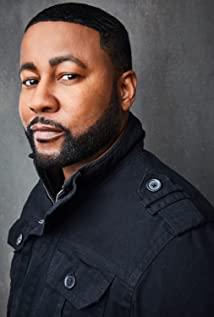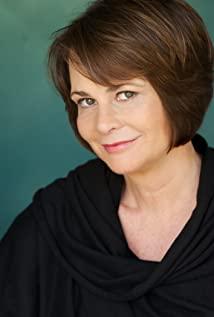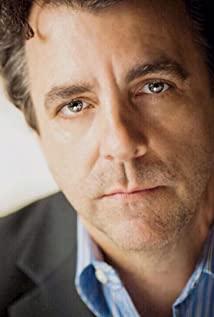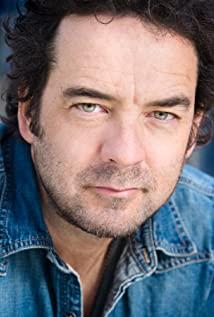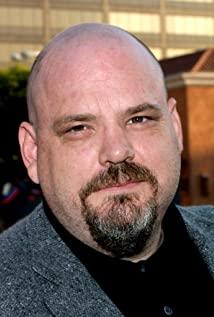We did not strive for normality, but we are trying our best to avoid abnormality. There may be a TV series with a weird character as the protagonist, but few TV series with a weird outlook on life as the perspective. "Doctor House" makes the abnormal and normal outlook on life collide, doubting the normal, reflecting on the normal, subverting the normal, and finally reaching a delicate balance between the normal and the abnormal. This drama not only has abnormal content, but also abnormal format. It diagnoses human nature with the cloak of diagnosis of illness, and uses seemingly broken abnormal narratives to collage the protagonist's complete spiritual world; it uses humor to express despair, let us laugh all the way and watch the protagonist go to extinction.
Abnormal personality/Everybody lies.
Genius has side effects. (Genius has side effects.) A talented and world-famous doctor, an only child with a smooth sailing and worry-free food and clothing, Dr. House seems to have everything, why bother to hang "I'm in pain". On the lips? Why do you hate human beings so much? The sensitivity above ordinary people makes him an excellent diagnostician, and also makes him extremely sensitive to the ugliness of human nature and the hopelessness of life. Being a man makes him painful, and this mental pain is externalized into physical pain. In order to protect himself, he chose to be isolated from the world. If you cannot refuse to communicate with others in life, then you will refuse to communicate with others spiritually. He trades loneliness for safety, and this loneliness is externalized as Vicodin. He is both a Schopenhauer and a cynic, in other words, being a Schopenhauer makes him a cynic. I would rather believe in wishful thinking that the dog in S2E18. Sleeping Dogs Lie has a cynic meaning in it, and when the last shot of this episode stops on the face of the sleeping house who is indifferent to the dispute between Cameron and Foreman, I Can't help but admire this kind of secret attack festival. His indifference is the sign of the warmth in his heart, and his rudeness is the cover of the softness of his heart. In S2E2. Autopsy, House is the most indifferent to girls, and it is also House that touches them the most by the girl's embrace. He stayed away from the crowd because he was afraid that the warmth and softness would be awakened again, exposing his vulnerability to injury again.
House treats pain with ambivalence. He hates physical pain, but he is quite detached from mental pain. But no one can completely separate the two. On the one hand, physical pain internalized into mental pain, and mental pain sharpened his genius and made it more outstanding. He is more afraid of mediocrity than pain. So he "likes" a miserable life, which makes him different. This was once explained by Wilson: "You're so afraid if you change, you'll lose what makes you special." But Wilson disagrees with this "pain logic". He believes that pain cannot make House better, it can only make him more painful. (Being miserable doesn't make you better than anybody else, House. It just makes you miserable.) On the other hand, his sensitivity and excellence make his pressure-bearing ability low, and his physical disability is enough to become the shadow and burden of his life (我It doesn't say that limp is not painful, it's just that other people are not as painful as House shows). Mental pain aggravated physical pain, and he wanted to get rid of it again. The pain has always existed, so he had to turn to drugs for help, and becoming a drug addict made him farther away from normal life and more mentally lonely. Maybe genius and happiness really cannot have both. For others, House can let him choose happiness (S3E15 Half-Wit) without hesitation; for himself, he can't give up suffering. Physically, he can't; psychologically, he doesn't want to.
In addition to self-paralysis, House's way of avoiding pain is to minimize the expectations of human nature and life. The presupposition "everyone lied" is the most typical example. Similar adages are sharp and old-fashioned, but they also reveal a childishness, and protect themselves from being deceived and harmed with a puff of "I don't believe". This protective color is seen through at a glance in S5E15. Unfaithful-"You don't want to find someone to prove that you are right, you want to find someone to prove that you are wrong, you want to believe." (You're not looking for someone to prove you're right. You're looking for someone to prove you're wrong to give you hope. You want to believe.) "Desperate Presupposition" distorts House's worldview, so he is sensitive to the normal in the eyes of ordinary people. It is a symptom, and trying to find out the physiological roots behind the so-called "quality", but feels comfortable with the abnormality in the eyes of ordinary people. Many times, House is right. The patient's good qualities such as "kindness" (S4E13. No More Mr. Nice Guy), "patient" (S5E13. Big Baby), and "honest" (S5E17. The Social Contract) are indeed symptoms; Sometimes House is wrong. The patient's good quality "brave" (S2E2. Autopsy) is really good quality. There are spiritual powers that transcend physical reasons in the world. To be precise, House applies a double standard in his judgment of human nature. He only believes that good qualities are symptoms, while bad qualities "S2E1. Acceptance" and "Bastard" (S3E23. The Jerk) are bad qualities. . He doesn't simply believe in science, he just expresses despair. House’s right is frustrating, but House’s mistakes have given everyone, including House himself, hope to live.
Abnormal ethics/I want to save her. I'm morally bankrupt.
The "Desperate Presupposition" also makes House have a unique set of views and practices on the relationship between people. He combats emotional fragility, doubts the existence of sacrifice, ignores the norms of the world, and tests the bottom line of others. This "House ethics", which is completely contrary to common sense, can play triumphantly in most cases ironically, but it also often encounters challenges and resistance from patients, Cameron, Cuddy, and Wilson.
There may be pure emotions and tenacious loyalty in a peaceful life, but at the moment of life and death, the patient can make pure life dregs arise, and the loyal relationship falls apart. Since it can be muddled and defeated by illness, there has never been true purity and steadfastness in life. This is the logic of House. In S1E7. Fidelity, the husband who sadly verified that his wife cheated, S2E11. Need to Know model wife who secretly contraception, S2E15. Loving couple who clueless poisoned each other, etc. Cases continue to confirm House’s judgment, and what’s more, S2E14 The victim in Sex Kills was eventually proved to be the guilty. While House reveals the truth of life, there will always be patients who break through the harsh House logic, such as the father who died to save his son in S3E7. Son of Coma Guy, and the insomnia patient who decided to tell his girlfriend the truth in S2E18. Sleeping Dogs Lie. In fact, it is House who keeps a gentle corner deep in his heart. In that corner, he believes that people will transcend life and death to make the right choice (Cameron: If she was never going to do the right thing, why bother knocking her out?).
At this point, Cameron and House often have fierce conflicts, because she believes in meaningless dedication and lives in the ethereal aura of humanity. Moral dogmatism made her naive, rigid, and vague, she had high expectations of human nature, and she had a daunting saviour complex. She always thought that people would do the right thing, but she was always disappointed, so she became angry and became psychologically unbalanced. House is the opposite. He believes that people tend to act with primitive instincts and that selfishness is the norm in the world. (House: Foreman did what he did because it worked out best that way for him. That's what everyone does.) This is probably a bleak conclusion drawn from countless lessons, so he wants to teach these lessons to Cameron, so he took pains , Exhaust all means. House often uses the patient's mouth to present the ugly truth of life to Cameron. In S2E18. Sleeping Dogs Lie, Cameron finally discovered that the patient’s girlfriend had always understood the story of the incident, and her selflessness was actually out of selfishness; in S3E3. Informed Consent, the patient praised Cameron’s ruthlessness: stand on your own ground and behave as you believe. The thing is the most correct. (Good for you. Finally standing up for something; acting on what you believe.) In fact, this is exactly what House wants to tell her. In the process of teaching and anti-teaching, the personalities of both tend to be full. House's suspicion of good leads to tolerance of evil, which is part of human nature in his eyes. In S1E12. Sports Medicine, he forgives the lying baseball player: Everyone can do stupid things, but this shouldn't come at the cost of their entire thirst for life. (Everybody does stupid things; it shouldn't cost them everything they want in life.) This is the peace of mind brought about by low expectations of human nature. But Cameron's superficial kindness exposed the noble emptiness. She had been living in the illusion of saving others, but she didn't know the weight of the true promise. (House:
House's liberalism is destined to repeatedly hit the wall in front of Cuddy's idealism, and the red tape he tramples on is exactly what Cuddy cherishes. House doesn't care about the details or the means. He only cares about achieving the goal and doing the right thing; and Cuddy cares about the perfection of every detail instead of being an outstanding doctor. In S2E3. Humpty Dumpty, House has summarized Cuddy’s personality like this: "You see the real world and the ideal world, but you can't see what everyone else can see-the huge gap between ideal and reality. ( You see the world as it is and you see the world as it could be. What you don't see is what everybody else sees, the giant gaping chasm in between.)" Cuddy is contradictory in front of House, she is regular Believers and executors. In S4E14. Living the Dream, the inspector's words are actually agreed with Cuddy: "The rule exists because 95% of the cases, for 95% of people, it’s not wrong to follow the rules, and the other 5% must also follow the rules. Do it, or everyone thinks they are the 5%." But Cuddy also sincerely believes that House is the 5%. The dispute between her and House often ended in asking House to do what he thought was right. Cuddy is not weak, those concessions are actually appreciation and tolerance. In this abnormal work, love also appears in an abnormal form. House and Cuddy care about each other as provocation, quarrel and hostility. It seems that in this relationship, only Cuddy gives and forbears. Huddy shipper does not need to be sorrowful about a spring dream in S5E24, the false fantasy has brought substantial progress. House's hallucinations show the audience how much he relies on Cuddy for the first time, and behind the game's mentality is a sincere desire.
This drama best knows how to reconcile abnormal relationships and find a unique balance for it. This is true of House and Cuddy, as are House and Wilson. House does not believe in extraordinary trust and tolerance between people. He has always used all kinds of rogue methods, such as grabbing food, borrowing money and not repaying, to test Wilson's bottom line. What makes him curious is that Wilson has been able to ignore him and support and help him unselfishly. The more this happens, the more House wants to know whether Wilson has a bottom line, and where the bottom line is. Like Cameron, the play's setting and judgment of Wilson's personality are complete and objective. Wilson's selfless dedication is not because he is a saint, but because he likes to be needed. (You don't just have a fetish for needy people, you marry them.) The relationship between House and Wilson is balanced with the development of the plot. S3E7.Son of Coma Guy, House let Wilson leave before suggesting the patient to commit suicide, S4E15.House's Head, S4E16.Wilson's Heart, House gave up his life to save Wilson's girlfriend, these events finally gave the abnormal friendship a normal ethical foundation .
"Doctor House" brilliantly uses abnormal ethics to restore the original appearance of normal life. The original face of life is not black and white, good and evil, but complex and mixed, with good ends and good means everywhere. The choice of "Dr. House" is everywhere to measure group interests and individual interests. "Doctor House" just allows us to be more wise and clear in the face of moral dilemmas.
Abnormal faith/You talk to God, you're religious. God talks to you, you're psychotic.
House does not speak strangely and forcefully. His epitaph will be engraved with such names-mad scientist (Cuddy), radical atheist and thorough scientologist. Opposing religious beliefs, mysticism, and advocating only rationality, science, and logic, it is not surprising in China where "thorough materialists" are used to make conclusions, but in the United States, where most people are Christians, it is exceptionally different. House struggles with all irrational people and things throughout the series. Pious believers (S4 Big Love), God believers who do not believe in God (S5E15.Unfaithful), magicians (S4E8. You Don't Want to Know), and superstitious people (S5E18.Here Kitty) are all he mocks and The target of the attack, in S2E19. House vs. God, is a direct confrontation with God's spokesperson. Even experience-based Chinese medicine has been ridiculed by him: Who knows what a "god" is? How do we need to "safe"?
In S5E15, the pastor said that fear of the unknown is the foundation of faith. Ordinary people know awe, and the way to overcome fear is to acknowledge the limitations of human rationality. "Even if there is the complete truth before us, we can't see the whole picture" (Wilson), believing that there is an omniscient and omnipotent God above mankind. And House is proud and paranoid, so his way to overcome fear is to believe in absolute knowability (We can know everything). This is also a kind of belief, an abnormal belief. The belief of ordinary people is to deify an imaginary existence, and the belief of House is to deify reason and science. House is like all Chinese who receive science-only education, we are not superstitious, we are superstitious in science. There is no difference between the belief of House and the belief of ordinary people. God cannot save the dead and heal the wounded, and science cannot soothe the soul. The sense of security that cannot be obtained from God cannot be given by science. And the reason House believes that he can find the answer to every question is because it makes him feel safe. In S2E19, Wilson analyzed this sharply. (If the universe operates by abstract rules you can learn them, you can protect yourself.) At this time, he has turned from superstition in science to superstition in himself. This is why, as a scientific theorist, he dares to diagnose intuitively without any scientific basis (S3E1: Meaning). He can’t accept ordinary people’s beliefs because of his unpleasant and thorough ability to see through “religion is not the people’s narcotic, religion is only the people’s placebo”, and people who know that a placebo is a placebo have no chance to be comforted; he The belief of ordinary people cannot be tolerated because this belief challenges his divinity, so he does not hesitate to use boring scientific explanations to break people's beliefs and imaginations (something to live for). He believed that if the wonder's gone when the truth is known, there never was any wonder.
No need to worry, no need to pray. (S3E24. Human Error: He refuses to worry or pray, he believes if you don't have one, you don't need the other.) However, the world is not in the hands of anyone, we always worry, we still To pray. House will also worry about "falling from the cloud (S3E2. Cane & Able, Wilson: I was worried your wings would melt.)". He is not God after all, God doesn't limp (God doesn't limp). S3E24 most typically reflects this play's subtle grasp of the scale of scientific theory and scientific only. House attributed the patient’s suffering to God's fault-congenital heart defects, attributed the patient's recovery to himself; the patient's husband attributed the cardiac arrest to human fault-House's contempt, attributed the patient's recovery to God . The confrontation between the two proves their respective biases. If human beings are truly perfect, it will not take so long to find God’s mistakes, and if there is no "just" reminder to stop and recover, how can human wisdom alone make patients? Bring back to life. Regarding faith, the whole drama has been trying to express this view: believe but not superstition, rely on but not rely on, whether it is for religion or science. S5E18, the play finally made a summary statement on this point of view: "I do believe that some things cannot be explained by science, and rely on faith and prayer, but that only applies to the waiting room, not the operating room. (I really believe that there are things that science can't understand, that there is a role for faith and prayer, but it's in the waiting room, not the OR.)"
非normal的narrative/ He sees himself in this kid.
The New York Times once commented on "Doctor House": The fatal attraction of "House" is that it insists on making itself look like a soap opera, but deliberately refuses to be a soap opera. (HOUSE's maddening appeal is its insistence on dressing up like a soap opera as it willfully declines to behave like one.) Whether several protagonists and a hospital can expand the breadth and depth of the series will be the dividing line between mediocre soap operas and outstanding dramas. The secret of "Doctor House" is mapping and mining. S4E5. Mirror, Mirror directly confessed this technique with the title "Mirror". In fact, most of House's patients are like a mirror reflecting the secret pain of each protagonist, but this kind of mapping sometimes appears in the form of mirroring, sometimes in the form of anti-mirror. S1E6. Thrombosis patients in The Socratic Method, S1E9. Painful musicians in DNR, Autistic children in S3E4. Lines in the Sand, S3E23. Smart and bastard boys in The Jerk, S5E12. Painless in pain A tormented father can let House see who he is or what he thinks he is. This mapping may arouse his sympathy, or it may arouse his disgust. S3E14. Insensitive affects the tension between House and the patient through the mirror image. S5E16. The Softer Side and S5E24. Both Sides Now embodies House's self-antagonism and self-repression into symptoms and projects it on patients, transforming the entanglement of dual personality, rationality and emotion into diagnosis and treatment of symptoms. It’s not uncommon to portray protagonists outside of House in the same way. S3E17. Fetal Position is a metaphor for the maternally overwhelming Cuddy, S4E9. Games stings the cynical Amber, not to mention that all dying patients can cause Thirteen panic, all Both of his husband and wife problems can bring Cameron's husband back to life. This technique makes the appearance of every patient at the Princeton Plansburg Teaching Affiliated Hospital (PPTH) like a stone thrown into a pool of spring water, which can always arouse layers of ripples.
The consequence of the mapping is the mutual excavation of the stories of doctors and patients, so the narrow time and space are extended, and the simple scenes carry a not-thin plot. To paraphrase the words of the actor Lisa Edelstein who plays Cuddy: When the characters talk, you can feel that everyone has a rich and unique experience, and they have many common pasts. You will like the sparks that come out of the collision together, and you will also like the feeling that the story between them is slowly spreading out. The mapping also makes the narrative implicit and timeless, especially the mapping of the relationship between the characters transforms the straightforward romance into the profile description. If you want to talk, you can make the relationship between the characters more sexy and moving. Judging whether a romantic relationship has style does not need to look at the performance of the two parties in the relationship when they are together, but depends on their performance when they are not together. In S2E10. Failure to Communicate, the relationship between the patient and his wife is used as a metaphor for the relationship between House and Stacy. House discusses the patient’s family affairs at will, but inadvertently makes the most affectionate confession: each other’s needs make him believe that he can do something for him. Love and change can overcome madness and irrationality and obtain happiness. (He loved her enough to convince himself he could change.) The eyes of American audiences are discerning, and the love affair between House and Stacy was selected as one of the hottest relationships.
The play’s narrative techniques are much more than that. The skillful use of many narrative techniques that are not common in TV plays is often amazing. It can even photograph imaginary, illusion, and memory. S1E21. Three Stories, S2E8. The Mistake uses multiple assumptions. S1E21 assumed a triple past time and space, and deliberately used the delay of thinking conversion to connect the stories of the three patients. House and the students in the class jumped and interspersed between the real and the assumed time and space at will, and finally the three assumed pasts overlapped into a real one. In the past-House's history of lameness. This episode is largely a narrative show. You can only see a display of narrative energy when you look at the episode alone, but when you look at it throughout the season, this episode again shows the calmness of the show's narrative. It's rare that a TV series has enough patience to slowly outline the protagonist's prehistory and the psychological motivations of all behaviors throughout the season, and this kind of patience gives this series an extraordinary meaning. When the first season is over, we understand the source of the pain and loneliness, sympathy and sensitivity of House. When all the clues are finally connected into a complete picture, the impact of each episode before us is easy to gather in an instant, in a geometric level. Zoom in digitally. The surprise of S2E8 can be summed up in one sentence: "Rashomon" in the TV series. If S1E21 is a triple assumption of one person, then S2E8 is an assumption of three people about the same thing. Each narrator describes his own story based on his own interests or due to his own cognition, and false statements are spread intentionally or unintentionally in the story. One assumption can be corrected by the other at any time, and the truth is revealed at the end of this episode-Chase's lies and mistakes were due to the sudden death of his father. This ending gave the audience a technical and emotional shock, once again showing the connection between the single episodes of the show and the tolerance of the overall layout; S2E24. No Reason uses multiple illusions. There are many works describing hallucinations, but hallucinations can be used with hallucinations, and there are not many works that have such a subtle transition between hallucinations and between hallucinations and reality. Until the final lens reveals the mystery, we will not make a case for the ingenious design of this episode; S4E15.House's Head, S4E16.Wilson' s Heart uses multiple time and space. To be precise, each special narrative will use multiple time and space, but the ending of the fourth season clearly distinguishes between memories and reality, and allows blurred memories to overlap with past and present reality, making real time and space and false The characters in time and space encounter and talk to each other, so as to find the real past. In contrast, the ending of the fifth season is slightly inferior in technique. Even so, its rigorous narrative, precise editing, persistence in character, and grasp of the cold tone are still admirable.
From the analysis of narrative skills, we can also see the limitations of the play's narrative mode. House summed up more than a hundred episodes, it is nothing more than a variation and repetition of the above four motifs: about quality, about emotion, about reason, and about mapping. The deeper the discussion of each topic, the smaller the room for sublimation of the topic. This is why many episodes of Season 5 have clear themes but it is difficult to bring freshness. The history that a few protagonists can carry is limited, and continuous digging can only get emotional garbage. Nowadays, even if Cameron's husband shows up in real life, it can't bring us the first time to hear this story. The screenwriter uses two methods to avoid this situation: one is to save the material, so the relationship between House and Cuddy, Chase and Cameron is like squeezing toothpaste; the other is to add characters, so the drama is scattered, and the beginning and the end cannot be considered, clues The perfect interweaving of the narrative has become a trivial layout, and the pleasure of multi-line narrative disappears. In fact, the real essence is only in the first two seasons. The weakness of the third season has been accompanied by a lot of meaningless plots. The lively and beautiful appearance of the fourth season is just the lingering life of Jiang Lang before he is exhausted.
The abnormality of the theme and form indicates the abnormality of "Doctor House" itself. It has enough breasts to treat normal and abnormal equally, regardless of whether the abnormality is caused by pathology, physiology or psychology (S1E16. Heavy, obesity; S3E10. Merry Little Christmas, dwarf; S1E15. Mob Rules, homosexuality); it has enough The feelings of the protagonist allow the protagonist to constantly argue and express his ideas, and are supplemented by a seamless episode, although there is only a thin line between the feelings and the hypocrisy. It has the clearest understanding of the thoughts it wants to express, so that the concatenation of classic lines is a film review. "House" is self-explanatory; it is wise enough to make it unwilling to be reconciled to normal narratives and not afraid of abnormal narratives. Only in "Doctor House" I can feel the importance of the title of each episode, because it can always cover all the clues and key plot turns that appear in an episode. There are so many metaphors and so many baggages in its script, and within forty minutes, there will be a lot of surprises and surprises. Its lines of eloquence and the taste of the soundtrack seldom match those in American dramas. All this shows that the abnormality of "Doctor House" is because it is extraordinary.
2009-8-2
View more about House reviews


